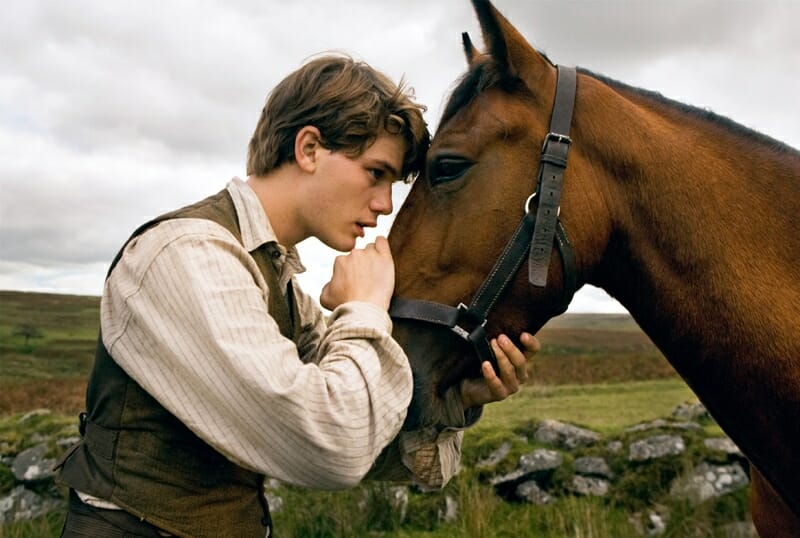War Horse

Only a true visionary like Steven Spielberg could take a simple story about a horse and transform it into a grandiose work of cinema. Though not the acclaimed filmmaker’s greatest feat, War Horse is a poignant picture wrapped warmly in humanity. The film, despite an entirely different setting, also evokes prior Spielbergian gems such as Close Encounters of the Third Kind and E.T. with its redemptive inferences.
Adapted from Michael Morpurgo’s 1982 children’s novel of the same name, War Horse tells the story of a boy, Edgar (Jeremy Irvine), and his beloved horse, Joey. From the genesis of their relationship on the English countryside, to Joey’s involvement in World War I, to the hopes of their eventual reunion, the film captures the journey of the horse and the pivotal effect it has on everyone whom the horse encounters, particularly Edgar.
In the same way he previously used aliens, Spielberg uses Joey as a supernatural catalyst for hope and salvation amid difficult circumstances. The horse’s very being, a representation of all that is good in the world, brings redemption to children, families, soldiers and, essentially, a war. Because of this, he receives the nickname “miracle horse.”
Joey’s transcendence becomes especially realized in a humorous war sequence during the film’s second half. Caught in barbed wire in the middle of the battlefield, he fights to survive and inspires soldiers from both regimes to momentarily set aside their differences to rescue him. The unlikely scenario invokes humor as two enemies, who moments before were intent of killing each other, engage in small talk on the front line but, even more, it further confirms Joey as a vehicle of divine intervention.
This sequence portrays redemption on a macro level, but perhaps the most moving aspects of the film lie in the smaller moments in which Joey forms a bond with different characters. In these threads, Spielberg taps into human experience the most directly. As Joey brings out the good in a host of minor characters—beset as they are by struggles so familiar to us all—the audience connects with them, as well.
-

-

-

-

-

-

-

-

-

-

-

-

-

-

-

-

-

-

-

-

-

-

-

-

-

-

-

-

-

-

-

-

-

-

-

-

-

-

-

-








































